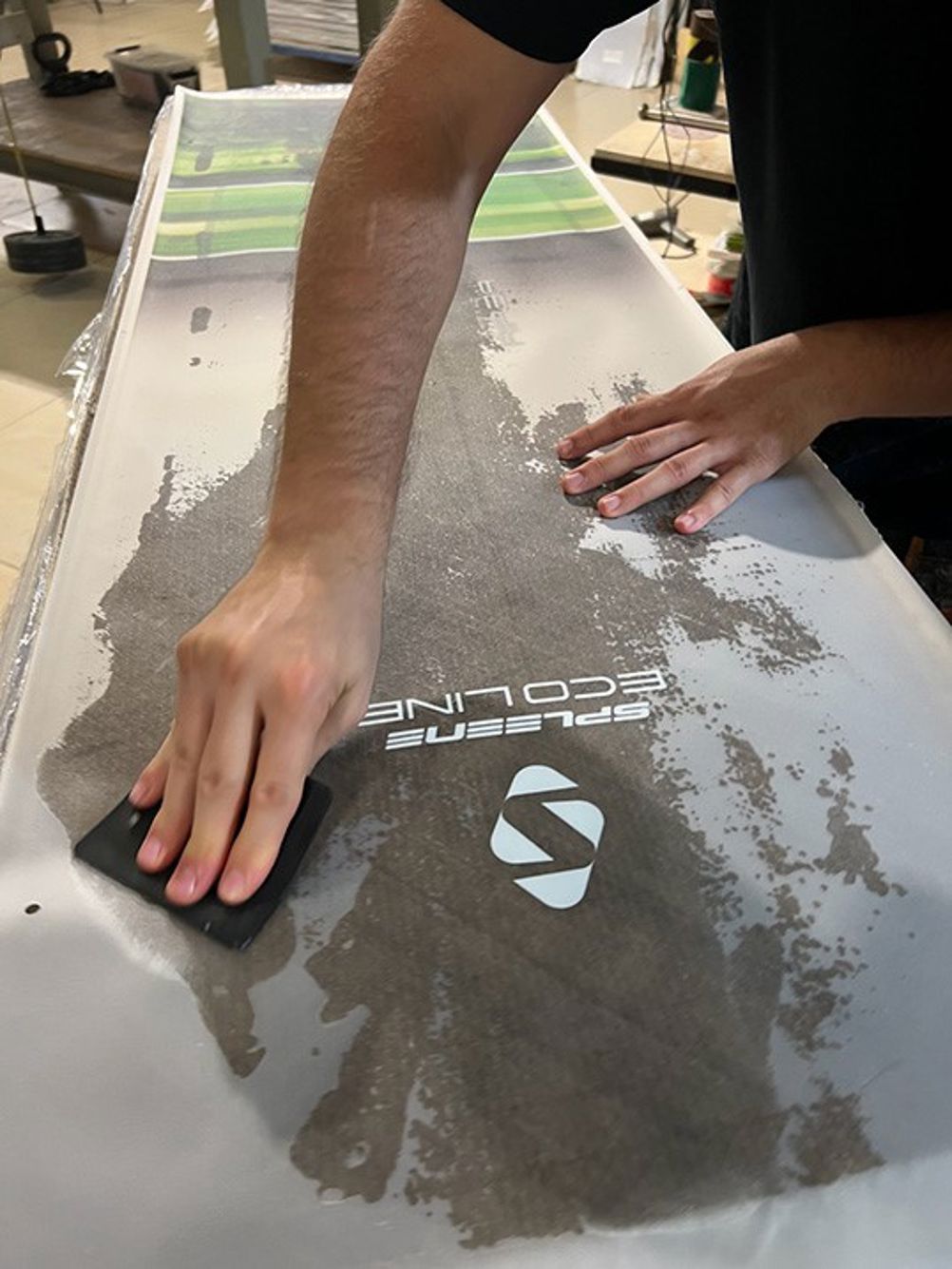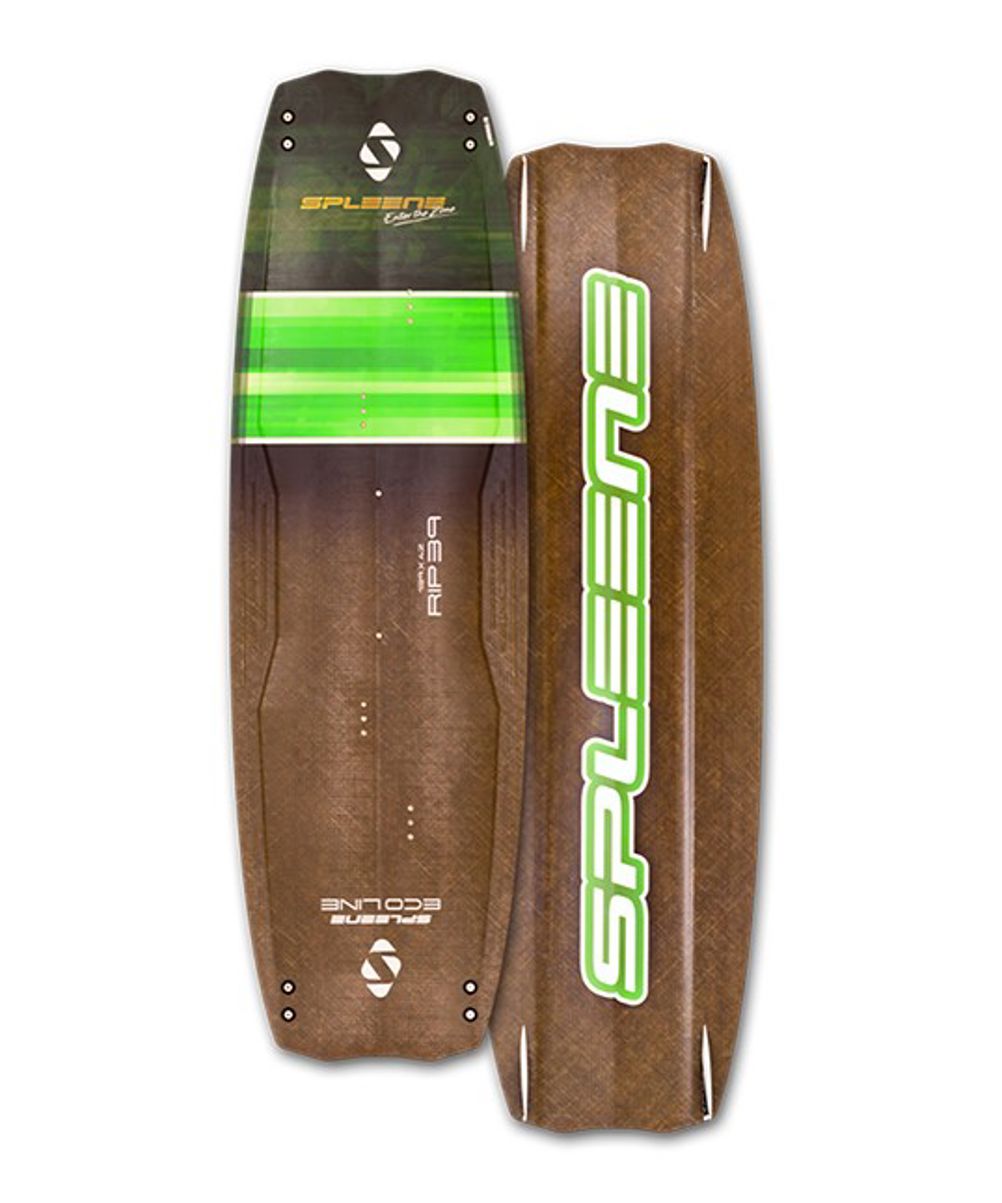Designed with a commitment to sustainability and developed during a 2 year collaboration with the Technical University of Applied Sciences Augsburg and the German Federal Ministry for Economic Affairs and Climate Action, all aspects of the Eco Line RIP 39’s construction were reviewed. Flax fibre multiaxial reinforcement plies, a CNC milled wood core and bamboo rail sections are press moulded together using Sicomin’s GreenPoxy 33 bio-epoxy resin system to produce the world’s most sustainable twintip kiteboard.
Sicomin’s GreenPoxy 33 is an entirely CMR free resin system that has been optimised for a wide range of production processes including the hot press production used by Spleene for the new boards. GreenPoxy 33 allows manufacturers to quickly adopt greener processes, enabling eco-friendly performance with no compromise on ride quality, durability or performance.
In addition to redefining the environmental expectations for a kitesurfing board, the new Eco Line RIP 39 also delivers on the water. Spleene Kiteboarding’s unique deck, core and base design details coupled with the added vibration damping of the natural flax and GreenPoxy laminates, mean the new boards perfectly balance explosive pop for tricks and jumps with long term comfort that keeps riders out on the water.

"We chose Sicomin's GreenPoxy 33 primarily for its compatibility with our hot press moulding process. Of course, we wanted a great bio-resin, but it also had to be both production ready and backed up by an exceptional track record. There is no gain if bio-alternatives lead to delamination or increased fragility in the part," said Sebastian Fitz, Operations Director at Spleene. "Our collaboration with Sicomin allowed us to achieve awesome on the water performance without compromising our commitment to sustainability."
Spleene plans to expand the usage of GreenPoxy resins across its other twintip board lines, aiming for an entirely eco-friendly production across its range during 2024.







